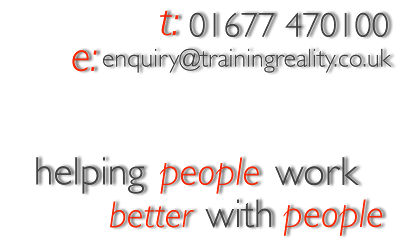Please press (at least!) one of these.
It costs you nothing, and (possibly) helps us spread the word!
Accidents happen
Tuesday, 31 August 2010
Accidents happen. Mistakes happen as well. Both happen far more than necessary, and, I would argue, both words are regularly misused.
Nearly 15 years ago, I decided to take my motorbike test. I was living in south east London at the time, and had moved from working in the City (easy commute into Cannon Street) to working in Surrey (a hideous commute in the car covering about a third of the M25 every day, twice). The bike, as I justified it to myself, was a purely practical solution to the pain on commuting; it made it enjoyable, and saved me around three hours every day.
Learning to ride in central London was a baptism of fire, but I count myself extremely lucky to have been instructed by ‘Dave’ (names changed to protect the innocent) - a hard-bitten ex-courier with an insightful mind well-hidden behind long greasy hair, an uncertain number of days’ stubble and various decorative metal items.
The man we shall call Dave taught me an awful lot, but - and I need to clean up the language quite a lot - the most powerful single thing was that, in order to survive on a motorbike in London, you need to assume everyone else is an idiot and ride accordingly. The essence of this is that whilst technically other people may be ‘to blame’ for something happening because they have done something clearly stupid, we need to take responsibility ourselves, because we should have anticipated that stupidity.
This lesson has - so far at least - kept me in one piece on the roads, but I think it’s got far broader applications. Here are just a few.
Accidents are inevitable
I struggle with this one, simply because I struggle with the concept of inevitability. At a macro level, I can accept that they will always happen, but at a micro level, looking at specific incidents referred to as accidents, most if not all seem anything other than inevitable
The key question to ask, when something goes wrong, is this. Are there any changes that could have happened that would have stopped the accident happening?
I’m not to blame
Honestly, I’m as human as anyone else, and just as (if not more) likely to see the relationship between the errors of others and undesirable consequences (to put it politely). However, I do try, and would encourage you to try, to understand what you could have changed to stop the undesirable consequences. It’s far easier to change your behaviour than to change the behaviour of others.
If other people are going to make mistakes, and you know that, what can you do to protect the outcome that you want? Whether that is completing a journey without the destination turning into A&E, or delivering a business result, or anything else, your focus should lie on what you can do.
It wasn’t deliberate
This is a phrase I hear far too often, and one that grates hugely. When something is missed, something is broken, something is not done or is done badly, it ‘not being deliberate’ is not really the issue - if it was done deliberately, we’re more likely to be talking about firings than training and development.
The explanation of something not having been deliberate is often used as a more subtle was of saying ‘it’s not my fault’ or ‘it was unavoidable’. It’s a way of shirking responsibility, and a particularly dangerous one because it’s pretty tough to learn from something when you deliberately avoid seeing the relationship between your actions and the consequences.
I’m only human
We all (most of us?) are only human. We’re not going to get everything right, every time are we? Well, no, but...
There are some subtle differences that need to be acknowledged if we’re going to minimise the number of mistakes we make and accidents that happen. Try these:
- Taking responsibility is not the same as blaming yourself.
- Your outcomes are not entirely controlled by other people.
- Learning from mistakes is not the same as not moving on or dwelling in the past.
Lots of management training stuff, lots of models and theory, NLP and so on, refer to taking responsibility, demonstrating ownership, being accountable and so on. But, if I’m perfectly honest, none of it is as simple, powerful and lasting for me than the real experiential training I had on a battered old bike in the hands of my friend Dave.
Please press (at least!) one of these.
It costs you nothing, and (possibly) helps us spread the word!



